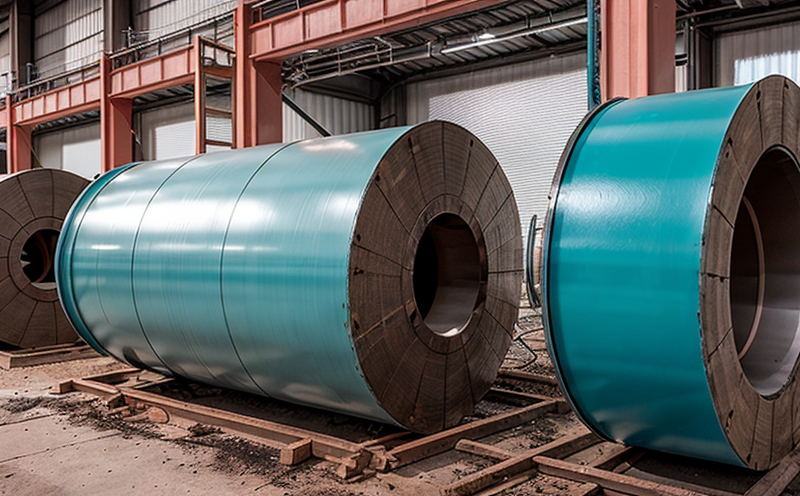ASTM G101 Corrosion Resistance Index of Steels
The ASTM G101 standard test method is a comprehensive approach to evaluating the corrosion resistance and durability of steels. This test is particularly vital in industries where materials must withstand harsh environmental conditions, such as coastal regions, industrial processes involving corrosive chemicals, or applications exposed to atmospheric elements.
ASTM G101 is designed to assess how well a steel specimen resists localized corrosion under stress (LCUS) and uniform corrosion. LCUS occurs when the surface of a metal is subjected to mechanical stresses in the presence of an electrolyte, leading to preferential corrosion at specific points on the material's surface. Uniform corrosion, on the other hand, is the consistent loss of material across the entire surface.
During the test, specimens are exposed to a chloride-containing solution under stress conditions for extended periods. This allows researchers and quality managers to observe how different alloys behave over time in real-world scenarios that mimic industrial environments. The test method also considers the influence of various factors such as temperature, humidity, and exposure duration.
The primary apparatus used in ASTM G101 includes chloride-containing solutions, stress-corrosion cracking testers (SCCT), and other specialized equipment designed to simulate the conditions under which corrosion typically occurs. Specimens are carefully prepared according to ASTM standards, ensuring that they accurately represent the materials intended for use.
The acceptance criteria in ASTM G101 are stringent and reflect the high quality expected from this test method. The results provide a numerical index that quantifies the resistance of the steel specimen to corrosion under stress conditions. This index is crucial for selecting materials that meet both performance specifications and regulatory requirements.
Why Choose This Test
- Evaluates LCUS and Uniform Corrosion: ASTM G101 offers a detailed analysis of both types of corrosion, providing insights into the specific conditions under which materials might fail. This is invaluable for industries where material integrity is paramount.
- Comprehensive Stress Condition Analysis: The test includes stress-corrosion cracking tests, which help identify how well materials withstand mechanical stresses in corrosive environments, a critical factor in many industrial applications.
- Standardized Methodology: By adhering to ASTM G101, labs ensure consistent and reliable results that are comparable across different facilities and regions. This standardization is crucial for quality control and compliance with international regulations.
Eurolab Advantages
EuroLab is committed to delivering the highest level of expertise in ASTM G101 testing. Our team of experienced professionals ensures that every test adheres strictly to ASTM standards, providing accurate and reliable results.
- State-of-the-Art Facilities: EuroLab boasts modern laboratories equipped with advanced instrumentation and equipment necessary for conducting ASTM G101 tests.
- Trained Technicians: Our staff is highly skilled, trained specifically in the nuances of this test method, ensuring that each specimen is prepared and tested according to the most stringent requirements.
- Comprehensive Reporting: EuroLab provides detailed reports that not only include numerical indices but also interpretative comments on material performance under various stress conditions.
Why Choose This Test
The ASTM G101 test is essential for industries that rely heavily on materials with high corrosion resistance. For instance, in the oil and gas sector, where pipelines are exposed to extreme conditions, understanding the corrosion behavior of steel alloys can prevent costly failures. In the aerospace industry, the reliability of fasteners and structural components under stress-corrosion cracking can mean the difference between safety and disaster.
- Cost-Effective Solutions: Early detection of materials prone to LCUS or uniform corrosion allows for the selection of more durable alloys, reducing maintenance costs in the long run.
- Safety Assurance: By ensuring that materials can withstand stress-corrosion cracking, ASTM G101 helps prevent accidents and injuries associated with material failure.
- Regulatory Compliance: Adherence to ASTM standards is often a requirement for compliance with international regulations governing industrial manufacturing processes. EuroLab ensures that all tests meet or exceed these requirements.
Competitive Advantage and Market Impact
Choosing ASTM G101 for corrosion resistance testing can provide significant competitive advantages. In a market where material integrity is critical, companies that invest in robust quality control measures using this test method are better positioned to meet customer expectations. The ability to consistently produce materials with high LCUS and uniform corrosion resistance can differentiate manufacturers in the eyes of their clients.
The results from ASTM G101 testing can also influence market trends by highlighting which alloys perform best under specific conditions. This information is valuable for both existing customers and potential buyers, helping to establish a reputation for quality and reliability.





